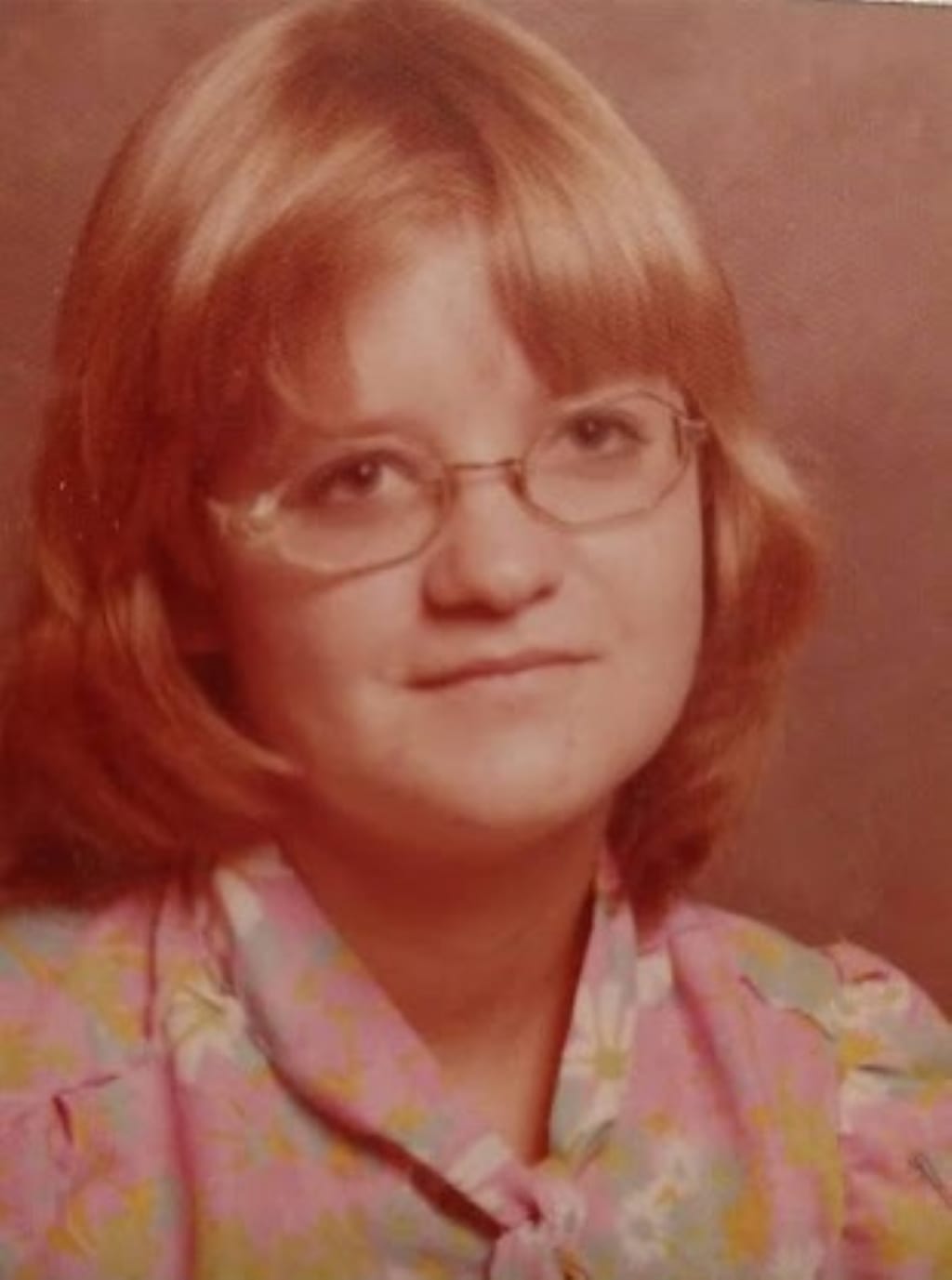How I Didn’t Know the Rights I Didn’t Have as a Woman Coming of Age in the 70s
What those rights were and when we got them

Last September I came across an article on Medium by writer Katie Jgln about the idealization of a non-existent pre-second-wave feminist time when women were happy being housewives. This fallacy is being perpetuated by a younger generation of “anti-feminists.”
I wasn’t surprised by the facts she revealed in the story. I read Marilyn French’s The Women’s Room when I was younger, and had taken a Women’s Studies course at the University of Massachusetts where we discussed the feminist movement and why it was necessary. It was an introductory course, which meant that most of our time was dedicated to first-wave feminists like Susan B. Anthony, Elizabeth Cady Stanton, and Margaret Sanger.
No mention was made of their privilege nor of Sanger’s time with the eugenics movement. When I took the class, we were still in the midst of second-wave of feminism, but I was under the impression that we had accomplished a lot more than we had here in the United States. I don’t think I was alone in thinking this, at least among my white contemporaries. We also thought the civil rights movement had changed things far more than it did.
While reading Jgln’s story, I was reminded of an experience I had as a twenty-something in the early 1980s, and was compelled to comment:
Whenever I read about the things we couldn’t do until the 70s, I’m still shocked that I had no idea how close I was to those restrictions. In my 20s I was married to a guy who made me do all the talking. I remember a landlord who refused…downright refused…to talk business with me. He would only talk with my husband. I thought the man was so old-fashioned, a throwback to some long ago time. I didn’t learn until later that we were really only talking a decade. My mom worked, my dad worked, we kids worked when we were old enough. Realizing how oblivious I was creates a terrifying type of ennui.
Another Medium writer, Ellarwee Gadsden, responded to my comment:
Do you have any idea how you managed to remain oblivious? I’m curious.
At first, I was taken aback by the question. It made me think. I questioned myself. Was I oblivious? Were the signs all around me and I just didn’t notice? Was I bopping through life wearing rose-colored glasses?
When I was able to come back to the question, this is how I responded:
I think it’s a combination of these 4 things:
We moved a lot. I made at least one “best friend” wherever we lived, but we were focused the general things that kids focus on. As a teen, I was aware of the war and the civil rights movement. We never talked about women’s rights in our current event classes.
I was doing a lot of reading about the paranormal and metaphysics. Sadly, I didn’t have the frame of reference to interpret the things I read about the witch trials, etc., as what they really were in relation to women.
I became familiar with racial discrimination first-hand in 8th grade when we moved to rural Georgia, where I was ostracized by most of the white kids because I became friends with the Black girls I sat with on the bus. In fact, my sister and I were told we apparently weren’t even “supposed” to be sitting with Black kids. We didn’t know, and we didn’t care. The next year, in Florida, I was bussed to a previously all Black high school during the desegregation push.
But women’s rights? Again, nobody I knew was talking about it.
I was the oldest child. I had responsibilities at home, as well as babysitting jobs outside the family beginning at age 11. So did my friends. We were too busy to notice, I guess?
Both of my parents worked full time jobs for most of my life. I knew a few people who had stay-at-home moms, but when I was a kid I thought it was a choice. Nobody talked about it.
When I was 15, I went out and got a “real” job in addition to babysitting. I just thought it was a matter of course, until I married my abuser and started experiencing some of the discrimination myself. (There were signs in the Air Force, but I didn’t recognize them until later in life when I began to explore my issues).
I just thought about this: I was shy. I stayed away from large groups of people (even my own age) because I was always afraid of being made fun of or something. Self-assured girls intimidated me. Maybe if I had not been this way, I would have met some girls who were actively discussing these issues.
I think this list is accurate. Moving around a lot, never being part of a clique of girls, the fact that at our economic level, Mom pretty much always worked, and doing my personal nonfiction reading about things more esoteric than women’s rights are all factors that managed to keep me oblivious.
Other factors
There are other factors as well, I think. I was ten in 1968, and had pretty much grown up with the Vietnam War in my livingroom. The anti-war movement and demonstrations, along with the civil rights demonstrations and marches were the sort of in-your-face news stories that I couldn’t miss.
On New Year’s Day, 1968, I was burned badly and spent three months in the hospital, where I didn’t see any news. Later that year, I can remember Bobby Kennedy’s funeral and the death of Dwight D. Eisenhower the next year. I was in fifth grade. At that point, I was dealing with the personal heartache of other kids being creeped out by my still-fresh burn scars.
The regular nightly news was not at the center of my focus. Unless people I knew talked about things in the news, I didn’t know about them, including the National Organization of Women (NOW) marches and picket lines.
I don’t remember the passing of Roe v. Wade in 1973. It just seemed to me like it was always there, like “no prayer in schools” was a thing some adults complained about for my entire education. My parents didn’t complain about it, and I guess abortion wasn’t an issue of import for my parents at the time.
I do recall the NOW marches for the Equal Rights Amendment (ERA) and being excited when Billie Jean King won the “Battle of the Sexes” tennis match against Bobby Riggs. I was becoming interested in women’s rights, the environment, and the legalization of marijuana (even though I was never much of a “toker,” I felt it wasn’t something that should be illegal).
None of this, however, brought the fact that by 1976, the year I turned 18, graduated from high school, and joined the US Air Force, women had only been able to get a credit card on their own just two years prior. I had no idea that there were still important issues to be dealt with besides equal pay for equal work.
Some of them would come into play in my own life before I turned twenty, but even then, I didn’t have a full understanding of what I was dealing with.
The rights we didn’t have before my teen years
There were some rights that I knew we didn’t have until later, mainly because I was involved and knew first-hand, such as not being able to serve on the front lines when I was in the military, which didn’t change until 2013; or because I remembered the news when the law was changed; for instance, choosing not to have sex when their husbands wanted to, which didn’t change until 1993, when spousal rape was criminalized in all fifty states.
Some of the rights women in the United States didn’t have until I was a teenager or later:
- Credit Cards: Banks could deny single women a credit card, and married women had to have permission from her husband to have one until the Equal Credit Opportunity Act of 1974 was signed into law.
- Pregnant employees: Women could be fired from their job for getting pregnant. This was true until the Pregnancy Discrimination Act of 1978 .
- Jury Duty: While the state of Utah permitted women to serve jury duty in 1898 and the Civil Rights Act of 1957 gave women the right to serve on federal juries, it wasn’t until 1973 that all 50 states passed legislation that allowed women to serve on a jury.
- Sexual Harassment in the Workplace: The Civil Rights Act of 1964 created the basis for discrimination cases in its Article VII and established the Equal Employment Opportunity Commission (EEOC). Women could not sue for workplace sexual harassment until 1980 when the EEOC determined that sexual harassment was a form of sex discrimination.
- Birth Control: In 1960, the birth control pill was approved for use as a contraceptive. Nevertheless, it was still illegal in some states and could only be prescribed to married women. Unmarried women did not have the constitutional right to obtain a prescription to contraceptives as married people until 1972, with the decision in Eisenstadt v. Baird.
- Health Insurance: Sex discrimination in health insurance continued until 2010, when the Affordable Care Act was passed. Believe it or not, women still often pay more in health insurance than men because insurance companies consider women to be “high risk” since they tend to visit the doctor more often than men, live longer, and have babies.
Losing ground
So much has been accomplished for women since the beginning of the twentieth century. Sadly, even as I’m realizing how much of this change took place in my own lifetime, we seem to be living in a world where it looks increasingly likely that all that hard work is going to be undone.
I will be doing a little exploration into some of the reasons for that that very soon.
About the Creator
Suzy Jacobson Cherry
Writer. Artist. Educator. Interspiritual Priestess. I write poetry, fiction, nonfiction, and thoughts on stuff I love.






Comments
There are no comments for this story
Be the first to respond and start the conversation.